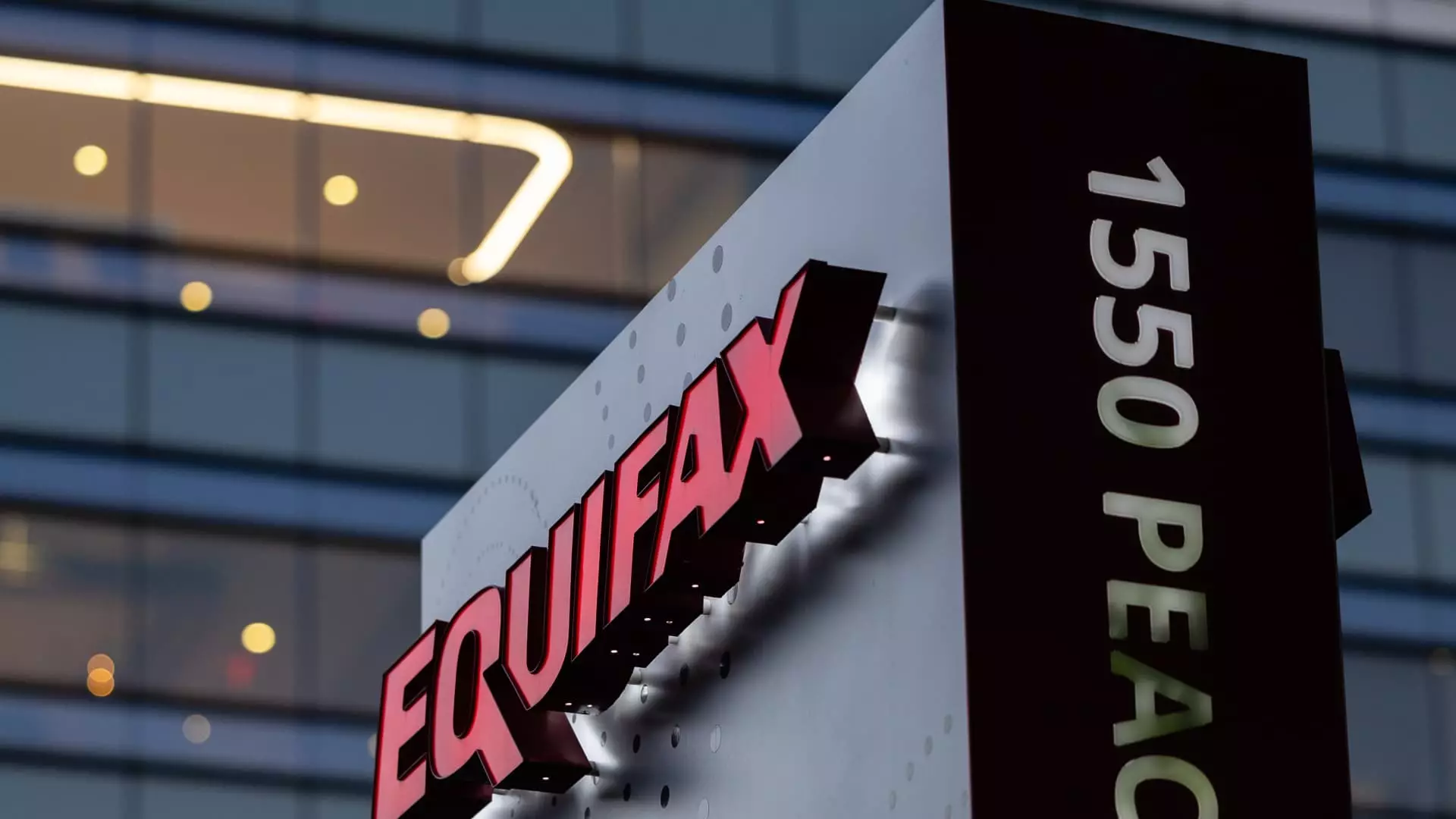In a significant development in consumer rights, the Consumer Financial Protection Bureau (CFPB) has imposed a hefty $15 million fine on Equifax for persistent errors associated with consumer credit reports. The crux of the allegations revolves around Equifax’s failure to conduct adequate investigations into disputed information. As one of the three primary credit reporting agencies in the United States, alongside Experian and TransUnion, Equifax’s flawed practices are alarming, particularly given the profound influence credit reports wield over various facets of an individual’s life.
Credit reports serve as essential tools, offering a detailed record of individuals’ borrowing behaviors, including details like payment histories and bankruptcy filings. When inaccuracies that slip through the cracks occur, the ramifications can be severe. Adam Rust, the director of financial services at the Consumer Federation of America, underscores this point by emphasizing how credit report inaccuracies can hinder one’s ability to secure loans, obtain employment, or even rent housing. These are foundational aspects of adult life that hinge on the accuracy of one’s credit report.
According to the CFPB, Equifax’s systems have been plagued with issues at least since October 2017, affecting as many as millions of consumers. The allegations indicate that Equifax routinely ignored consumer-submitted documents when addressing disputes. Moreover, the company allegedly allowed previously removed inaccuracies to resurface on credit reports and sent out confusing correspondence regarding the outcomes of investigation processes. The impact of such actions could deter consumers from rectifying inaccuracies, leading to a cycle of frustration and ongoing financial liability.
The importance of the CFPB findings cannot be overstated, as they highlight flaws within Equifax’s dispute resolution protocols, which fall under the guidance of the Fair Credit Reporting Act. This federal legislation is designed to protect consumers from inaccuracies in credit reporting. It raises broader questions regarding the accountability of major credit bureaus and whether existing regulations adequately safeguard consumer interests.
In response to the CFPB’s findings, an Equifax spokesperson stated that the company seeks to “turn the page” on the ongoing investigation. Over the recent years, Equifax has reportedly invested over $1.5 billion in upgrading its technology and restructuring its internal processes to enhance consumer support and dispute investigations. Despite these claims of improvement, consumers remain understandably wary. After all, the ramifications of credit report inaccuracies can jeopardize access to vital services.
Equifax was previously embroiled in controversy following a massive data breach in 2017 that compromised the personal information of approximately 147 million consumers, resulting in a $700 million settlement. Such incidents have fostered a climate of distrust, raising serious questions about whether consumers can rely on credit reporting agencies to manage their sensitive data appropriately.
In light of the ongoing issues with credit agencies, financial experts recommend that consumers proactively monitor their credit reports. Adam Rust suggests individuals check their reports at least once a year, with the Federal Trade Commission echoing this sentiment by advising consumers to review their credit reports before making significant financial decisions. Importantly, consumers should familiarize themselves with all information contained in their reports, verifying details such as addresses and debt balance accuracy.
Regular checks are crucial, particularly given that credit reports differ significantly from credit scores. While the latter is a numerical evaluation of creditworthiness derived from report data, any sudden fluctuations in one’s credit score may indicate underlying issues that need immediate attention.
Each of the three major bureaus allows consumers to obtain a free copy of their credit report once per week. The recommended platform for this is AnnualCreditReport.com, protecting individuals from potentially misleading or fraudulent sites. It is essential for consumers to be vigilant and aware of their financial standing accurately.
When consumers encounter discrepancies on their credit reports, taking appropriate corrective action is vital. Filing a dispute in writing, coupled with supporting documentation, can often yield better results than digital submissions. Additionally, escalating unresolved issues through complaints with the CFPB and state attorney general’s offices is advisable.
If consumers face persistent challenges in rectifying clear errors, pursuing legal consultation may become necessary. While not every discrepancy might warrant a lawsuit, significant financial harm due to reporting errors—such as higher interest rates—merits serious discussion with legal professionals, possibly those associated with the National Association of Consumer Advocates.
The CFPB’s recent actions against Equifax serve as a sobering reminder of the importance of accurate credit reporting and the responsibilities credit agencies hold. As consumers navigate a potentially complex financial landscape, awareness and proactive engagement with their credit reports are essential in safeguarding their financial futures.

